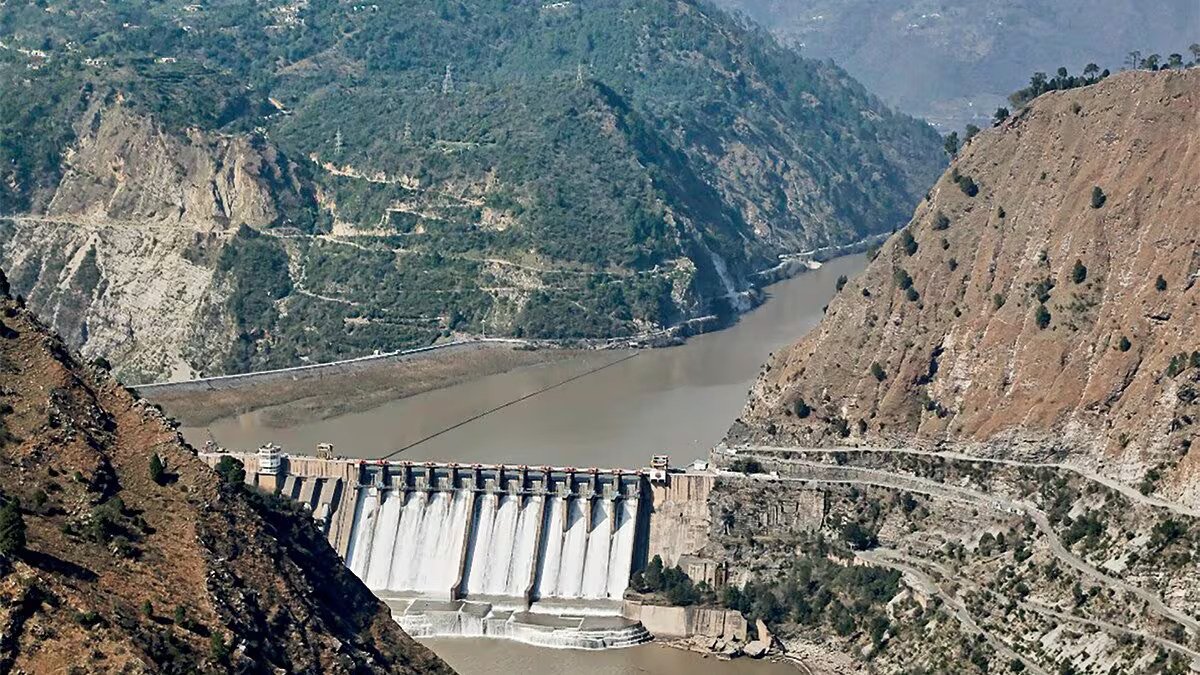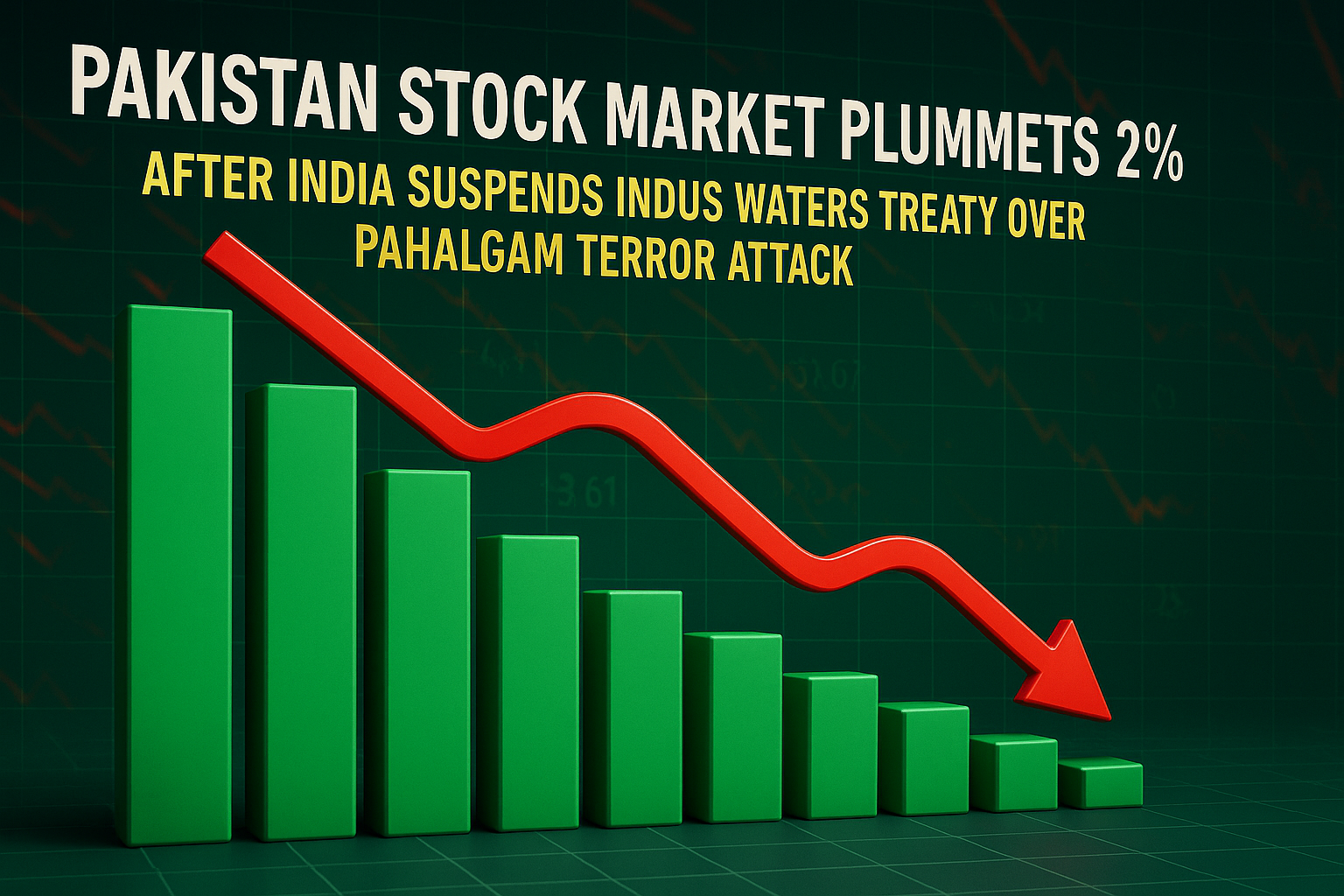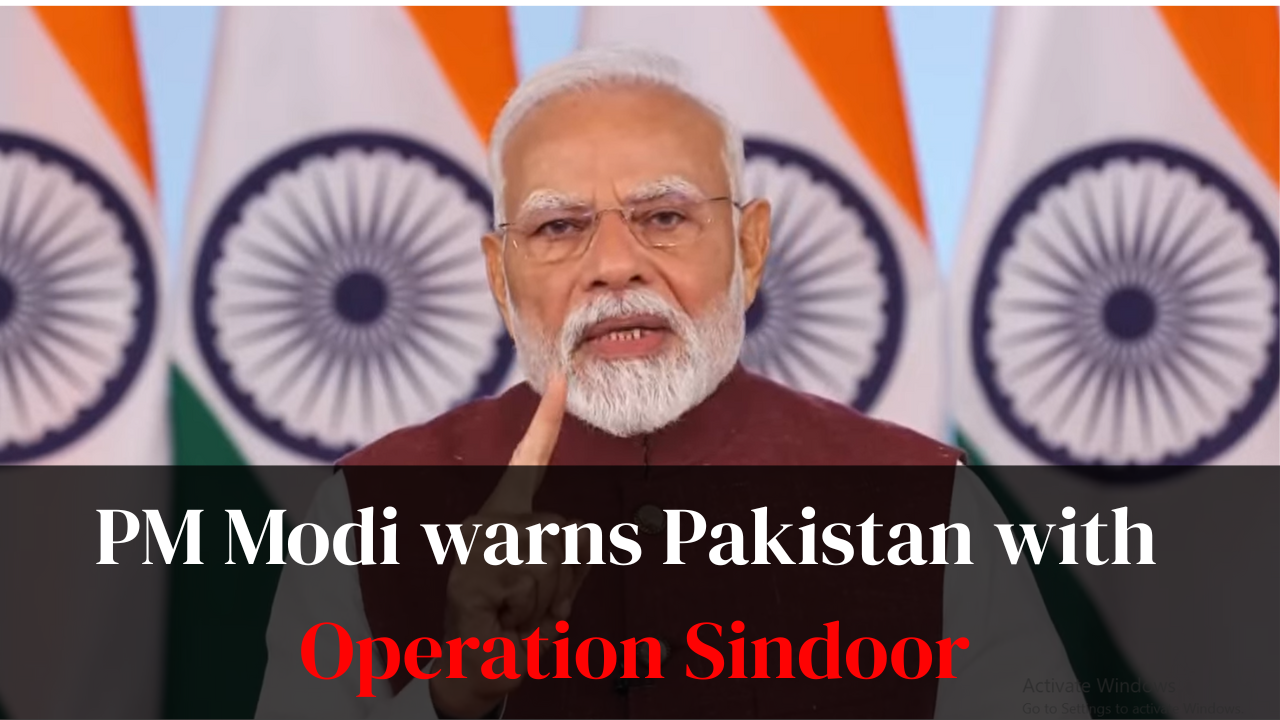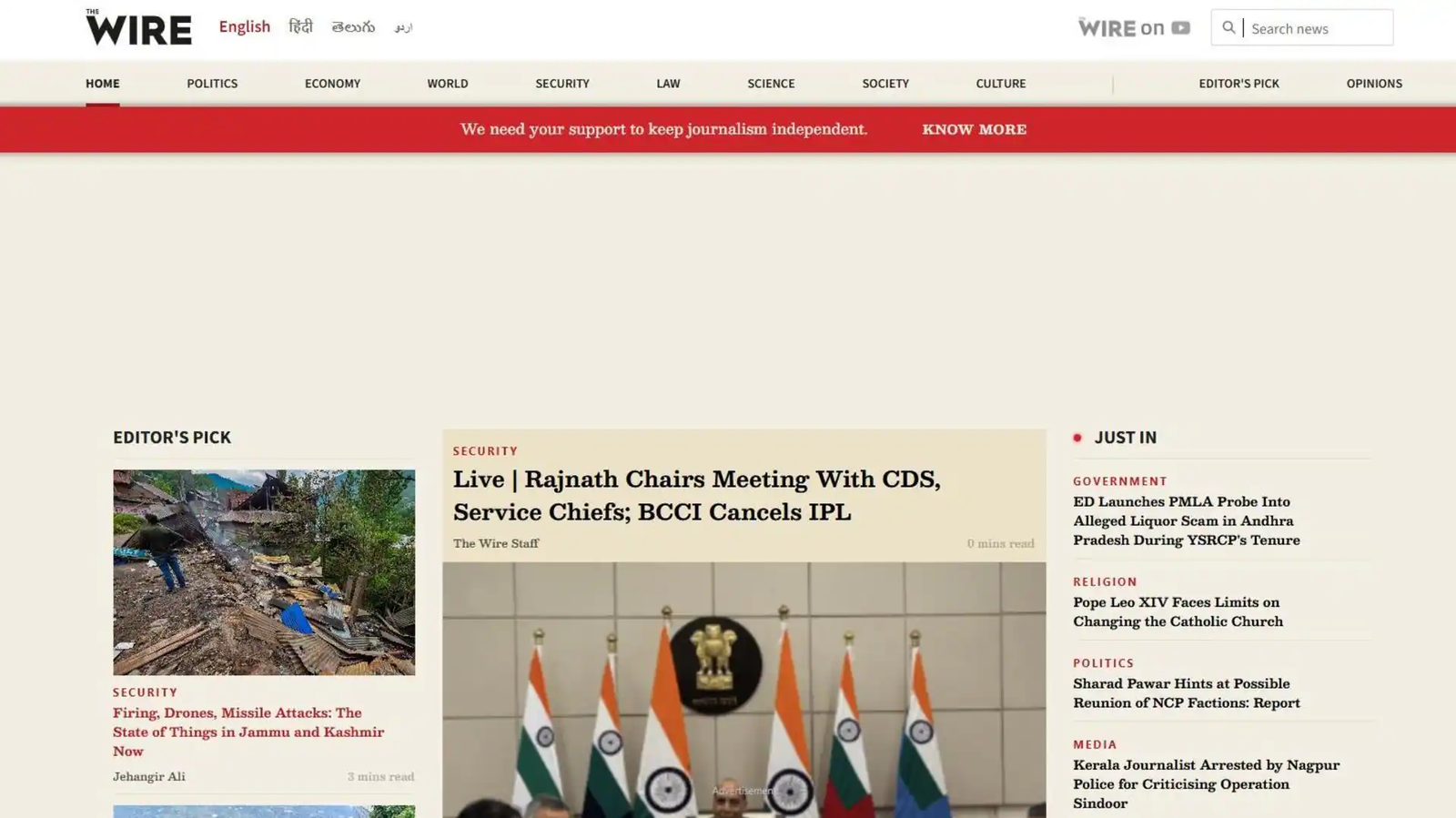Pakistan Stock Market Plummets 2% After India Suspends Indus Waters Treaty Over Pahalgam Terror Attack
In a dramatic shift of events, the Pakistan Stock Exchange (PSX) saw a significant decline of 2% after India took decisive diplomatic measures in response to the devastating Pahalgam terror attack. This unfortunate incident, which claimed the lives of 26 people, escalated geopolitical tensions, affecting markets on both sides of the border. The KSE-100 index plummeted 2.12%, wiping out 2,485.85 points, as investors scrambled to respond to the unfolding crisis.
India, in an assertive move, announced several punitive steps, including suspending the long-standing Indus Waters Treaty, closing the Wagah-Attari border, and revoking visa exemptions for Pakistani nationals under the SAARC framework. These diplomatic actions sent shockwaves through the market, causing investor sentiments to sour. In contrast, Indian markets remained relatively stable despite these geopolitical tensions.
A Tumultuous Opening for the Pakistan Stock Market
On Thursday, the Pakistan Stock Exchange (PSX) opened with a sharp decline, as the KSE-100 index fell to 114,740.29 within minutes of trading. This 2.12% drop reflected heightened fears among investors regarding the growing political instability between India and Pakistan, especially in the wake of the deadly terror attack in Pahalgam.
The attack, which took place in Jammu and Kashmir, shook the region and prompted swift responses from both nations. As the Indian government ramped up its diplomatic pressure, investors in Pakistan reacted quickly, pulling back from the stock market, sending the index into a freefall.
India's Diplomatic Measures in the Wake of the Pahalgam Attack
India’s Ministry of External Affairs didn’t hold back in its response. Among the significant decisions taken was the immediate suspension of the Indus Waters Treaty. This agreement, established in 1960, governs the distribution of water from the Indus River system. The suspension marks a critical turning point in bilateral relations, given the treaty’s long-standing importance in Indo-Pakistani relations.
Additionally, the closure of the Wagah-Attari border, a major crossing point between the two countries, was ordered. This decision adds another layer of tension to the already strained diplomatic ties. Moreover, the Indian government revoked visa exemptions for Pakistani nationals under the SAARC Visa Exemption Scheme (SVES), further deepening the divide.
The IMF’s Role and the Impact on Investor Sentiment
The stock market’s turmoil was exacerbated by another blow to Pakistan’s economic outlook. The International Monetary Fund (IMF) recently downgraded Pakistan's GDP growth forecast to a mere 2.6%, highlighting the nation’s economic challenges. This downgrade follows a series of financial struggles for Pakistan, including inflation and debt concerns, further intensifying the sense of uncertainty among investors.
Adding to the pressure, Fitch Ratings also raised alarms over Pakistan’s weakening currency and the political instability in Kashmir. These factors have created a perfect storm of economic challenges, sending ripples of uncertainty throughout the market.
Resilience in India’s Stock Markets Despite Geopolitical Tensions
While Pakistan’s stock market saw a significant slump, the Indian stock markets displayed a surprising level of resilience. Despite the ongoing tensions, India’s benchmark indices, the BSE Sensex and Nifty50, experienced only minor dips. The Sensex fell by 233 points, or 0.29%, and the Nifty50 dropped by 69 points, or 0.28%. However, these figures were much less dramatic compared to the collapse seen in Pakistan.
Experts noted that India’s markets remained relatively unaffected by the geopolitical fallout. Dr. VK Vijayakumar, Chief Investment Strategist at Geojit Financial Services, observed that the Nifty was showing strong performance, despite broader global market weakness. In fact, the Nifty’s performance contrasted sharply with that of the S&P 500, which was down 8.4% for the year.
Vijayakumar attributed the Indian market’s resilience to several factors, including the strength of the Indian economy, a slowing US economy, and sustained foreign institutional investments (FIIs). In just six days, FIIs invested Rs 21,263 crore in the Indian market, reinforcing the positive sentiment.
Fears of India’s Response and its Impact on the Market
While Indian markets have displayed resilience, experts warn that the situation is far from over. Investors are closely monitoring the developments and anticipating the potential economic and military consequences of India’s actions. Dr. Vijayakumar cautioned that the timing and nature of India’s response to the Pahalgam terror attack will have a profound impact on the markets, especially as the situation continues to evolve.
As the tensions escalate, the market will be keeping a close watch on the diplomatic and military decisions taken by India. In particular, investors are concerned about the impact of the Indus Waters Treaty suspension and the closing of key border crossings on regional stability and trade.

Key Diplomatic Measures Announced by India
The diplomatic measures announced by India in response to the Pahalgam terror attack were comprehensive and far-reaching. These measures include:
Suspension of the Indus Waters Treaty: The treaty, which has been a cornerstone of Indo-Pakistani relations for decades, will be held in abeyance, effective immediately.
Closure of the Wagah-Attari Border: The border crossing, a major point of trade and interaction between India and Pakistan, will be closed. Pakistanis holding valid endorsements can return through this route before May 1, 2025.
Revocation of SAARC Visa Exemption Scheme: Pakistani nationals will no longer be permitted to travel to India under the SAARC Visa Exemption Scheme. This move could have significant implications for cultural and economic exchanges between the two countries.
Persona Non Grata Declaration for Pakistani Diplomats: India declared Pakistani Defence/Military, Naval, and Air Advisors in New Delhi as Persona Non Grata, giving them one week to leave. India will also be withdrawing its own military advisors from the Indian High Commission in Islamabad.
Reduction of Diplomatic Presence: The overall strength of the Pakistani High Commission in India will be reduced to 30 from the current 55 by May 1, 2025. Similarly, India will also downsize its diplomatic presence in Pakistan.
Read More: Pahalgam Terror Attack 2025: Full Victim List, Government Response & Aftermath
Conclusion
The fall of the Pakistan Stock Exchange following the suspension of the Indus Waters Treaty and the closure of the Wagah-Attari border is a stark reminder of the profound impact geopolitical tensions can have on financial markets. As Pakistan’s economy faces challenges from both domestic factors and international pressures, investors are bracing for more turbulence.
While India’s stock markets have remained resilient so far, the coming weeks will be critical in determining how the situation unfolds. With a heightened risk of military escalation and continued economic uncertainty, both nations will have to navigate this crisis carefully to avoid further destabilizing their economies and markets.
Explore other popular Posts:
Blog | News | Entertainment | Education | Sports |
Technology | Cryptocurrency | Stock | Home | Sitemap





